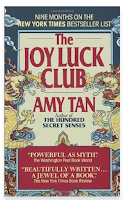The Executioner's Song

THE EXECUTIONER'S SONG by Norman Mailer Award: Pulitzer Winner 1980 Nominations: National Book Finalist 1980, National Book Finalist 1981, National Book Critics Circle Finalist 1979, NY Times Finalist 1979 Date Read: June 16, 2008 The Executioner's Song has haunted me from the moment I cracked the cover. The story of Gary Gilmore's life and crimes were written so vividly, I felt I had met his type before. Poor, uneducated and desperate, it is almost difficult to imagine Gilmore's life turning out in any way other than it did. In a life where events seemed to "happen" to Gilmore, his decision to force his own execution saw him finally become the master of his own life and fate. Heartbreaking and exhaustive, Mailer used interviews, transcripts and extensive research to piece together the life and impact of Gilmore's crimes. The three sections of the book focus on his early life and juvenile detention, his trial and finally, his pursuit of the d...
















